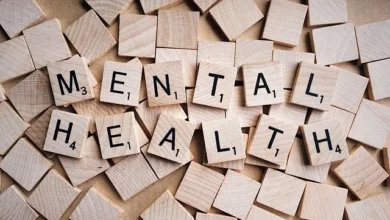Reasons you focus on others’ weaknesses, not their strengths

People constantly looking for flaws in others find it challenging to maintain good relationships with others. And it happens that you do not notice that you are concentrating on the negative and not on what would make you feel respect for the person you are communicating with.
Being picky about those around you is often the result of unconscious defense mechanisms, biases, and social dynamics that affect interaction with others. So, let’s figure out what motivates us to look for flaws in other people, not virtues.
8 reasons you focus on others’ weaknesses, not their strengths
1. Confirmation bias
Confirmation bias is the tendency to find, interpret, and remember information in a way that confirms our existing beliefs. When you look for evidence of what you already know, you see it, no matter how much it corresponds to reality. For example, you can consider all blondes frivolous and scan girls you know to confirm your theory.
However, such a selective perception is not truthful and rational. By pointing out flaws in others that confirm your beliefs, you overlook or ignore a person’s dignity and information that contradicts your opinion. So, if you have a negative image of someone based on stereotypes or prejudices gained from life experience, it’s time to learn to look at the world more broadly and focus on the merits of other people.
2. Offset

The mind uses several subconscious strategies to protect itself from anxiety and stress. These protective mechanisms help us adapt to internal conflicts but can also negatively affect how we perceive and interact with others. Displacement redirects emotions or impulses from the original target to a less threatening replacement.
Consider the following example: You feel disappointed and angry because your friend stopped communicating with you, but you can’t tell him what’s on your mind. Visit. A F R I N K . C O M .F0r full article To alleviate your condition, you unwittingly take it out on other people who look like your friend or just on those who, by an unfortunate accident, happened to be nearby.
You look for flaws in others not because they did something wrong but because you can’t cope with negative emotions. Displacement destroys your relationship, especially if you allow yourself to snap at others for no apparent reason. This is a short-term solution that helps to let off steam but has significant negative consequences in the long run.
3. The projection
We all have flaws and fears, and it can be challenging to admit we own them. To cope with moral discomfort, we can resort to projection, transferring our unwanted thoughts, feelings, and problems to others. For example, you can point out that your friend is not confident enough to hide his insecurity.
Or accuse a girl of being able to cheat as you try to cope with thoughts of fooling yourself. If you want to eliminate the habit of looking for flaws in others, it is vital to start with yourself and reflect: what if the bad things you see in people reflect the traits that you cannot accept?
4. Reactive formations
This is another type of defense mechanism of the psyche. Reactive formations are attitudes and behaviors that oppose our true feelings. The mind creates them when we cannot freely express our emotions and opinions, for example, if they contradict public morality or the beliefs of the people we communicate with.
For example, you think some people deserve to be hit when they say certain things. But it’s unacceptable in society to hit others, and you won’t do that. Your inner anger and resentment can manifest as hypocritical judgments and carping at people who say things you don’t like or show character traits you don’t like.
5. Exposure to stereotypes
Stereotyping restricts, reducing people’s complexity to simple features. It helps organize information and make it more transparent and accessible. However, the problem is that stereotypes are mostly negative, and we use them to justify our dislike of others. As a result, it forces us to look for flaws in others and becomes susceptible to attribution errors.
This misconception occurs when we associate a person’s characteristics with a particular group. For example, you may have a friend whose wealth leaves much to be desired because he is pathologically lazy. Because of this, you start to think of those who earn below average as lazy.
However, this belief is fundamentally wrong because there are many reasons why people stay in low-paying jobs. Not all of them are lazy — some may have career problems due to their health or life circumstances. So, if you regularly pick on a certain group of people, you should consider whether they deserve to receive such a negative.
6. Competition

People can look for flaws in others to gain an advantage and win. But life is not a competition, and it’s worth remembering that. By making other people competitors, even if they are not, we spoil our lives by perceiving every stressful situation as a threat to our success or status. As a result, we find fault with others, become anxious, and base our self-esteem only on victories over others. Few people will like to communicate with a person who does this. Therefore, it’s time to learn to look for dignity, even in those with whom you have to compete at work or in sports.
7. Low self-esteem
The lower a person’s self-esteem, the more often he looks for flaws in others. This tactic helps him cope with internal discomfort and increases his self-esteem. However, the effect of finding flaws in others is temporary, and the consequences of being picky are long-term and unpleasant. It can cost you a good relationship with others because it’s hard to love someone, constantly trying to remind yourself that there is something terrible in them. Instead of picking on others, you must focus on improving your self-esteem and self-confidence.
8. Increased need for control

The need to control everything around you can be the reason for finding flaws in other people. By highlighting the weaknesses of others, it is much easier to demonstrate your superiority and make it clear why you should be the leader. This helps reinforce a self-proclaimed sense of superiority and authority. Unfortunately, with the help of such behavior, it is never possible to earn someone’s respect.
Pointing out flaws, manipulations, and gaslighting makes you not a leader but a person you want to avoid. Of course, the desire for control does not continuously pursue nefarious goals. This may result from increased anxiety or unwillingness to admit one’s shortcomings and a desire for perfectionism. But anyway, you should train yourself to look for the good in people, not ignore the bad. Don’t get hung up on someone’s flaws if they don’t interfere with your life, and don’t make communication uncomfortable.




